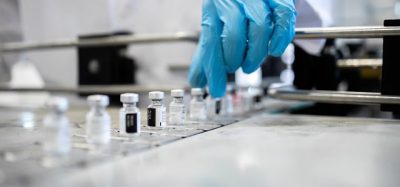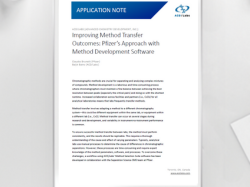2022 UK life sciences recruitment report revealed
Posted: 20 February 2023 | Catherine Eckford (European Pharmaceutical Review) | No comments yet
A report on the UK’s 2022 Life Sciences recruitment market revealed laboratory was the busiest scientific function among in-demand roles.


According to a new report on UK life sciences recruitment, there were 11,200 new professional scientific vacancies in the industry across England and Wales in 2022.
Among the most in-demand roles, laboratory was the busiest scientific function, surpassing 1k in new scientific vacancies, the research showed.
The report by Cpl Life Sciences and market data analysts Vacancysoft found that within the laboratory function:
- From 2020-22, there were over 2,700 job postings
- In 2022, there were over 1,000 new scientific vacancies. This represented a year-on-year decrease of -7.4 percent
- March 2022 was identified as the peak month for scientific jobs in the Pharmaceutical sector (586 vacancies, up 6.2 percent).
R&D ranked second, registering a year-on-year drop (-10 percent). Overall, most of the scientific functions experienced a decrease in the past year. The most prominent being Clinical Projects and Clinical Management, down 30.9 percent and 30.6 percent, respectively.
Vacancies in the sector throughout 2022
AstraZeneca reached the top of the table as a life sciences organisation hiring scientific talent in 2022. The end of the year resulted in over 1,000 new scientific vacancies. This is a year-on-year growth of 3.7 percent compared to 2021.
The volume of new professional scientific vacancies in the life sciences industry across England and Wales in 2022 constituted a year-on-year decrease of 15.6 percent compared to the over 13,300 vacancies in 2021.
Southern regions had the highest quantity for the third consecutive year, the research stated. Over 6,500 new jobs were published in the table across the life sciences sectors. However, these numbers translate into a yearly drop of -15.9 percent from 2021. Vacancies in London took the runners-up spot even though jobs in the capital, which were in excess of 2,400, fell by -13.3 percent compared to 2021.
The life sciences recruitment analysis showed that while March 2022 was the peak month for Pharmaceuticals, the fastest month-on-month rise occurred in January 2022 (46.5 percent). However, the industry experienced a year-on-year decrease in 2022, with volumes falling -15 percent.
Contract research organisations (CROs) experienced the most significant drop across all top sectors, a year-on-year fall of 18.3 percent. The biotechnology sector also registered a decrease of 10.8 percent.
Future of the life sciences recruitment market
Yvette Cleland, CEO of Cpl UK shared: “Current political instability, uncertainty with Brexit and the pause in deal-making will affect the fortunes of 2023, with early indicators showing a continued decline or flat growth in new jobs in the life sciences sector.”
Going forward, Cleland recommended: “More focus should be placed on better leveraging strong international relationships and opportunities to create better conditions and channels for trade.”
Clinical trials are a valuable form of mobile R&D investment, Cleland stated. “The Department for International Trade (DIT) should continue to work across the life sciences ecosystem to support and promote the UK as a clinical research destination and to secure R&D investment, which can speed up innovations in the NHS”.
Looking ahead, Moderna’s UK mRNA vaccine manufacturing centre, anticipated to begin production in 2025, is expected to create over 150 highly-skilled jobs.
Related topics
Big Pharma, Biopharmaceuticals, Drug Development, Industry Insight, Recruitment, Research & Development (R&D)









